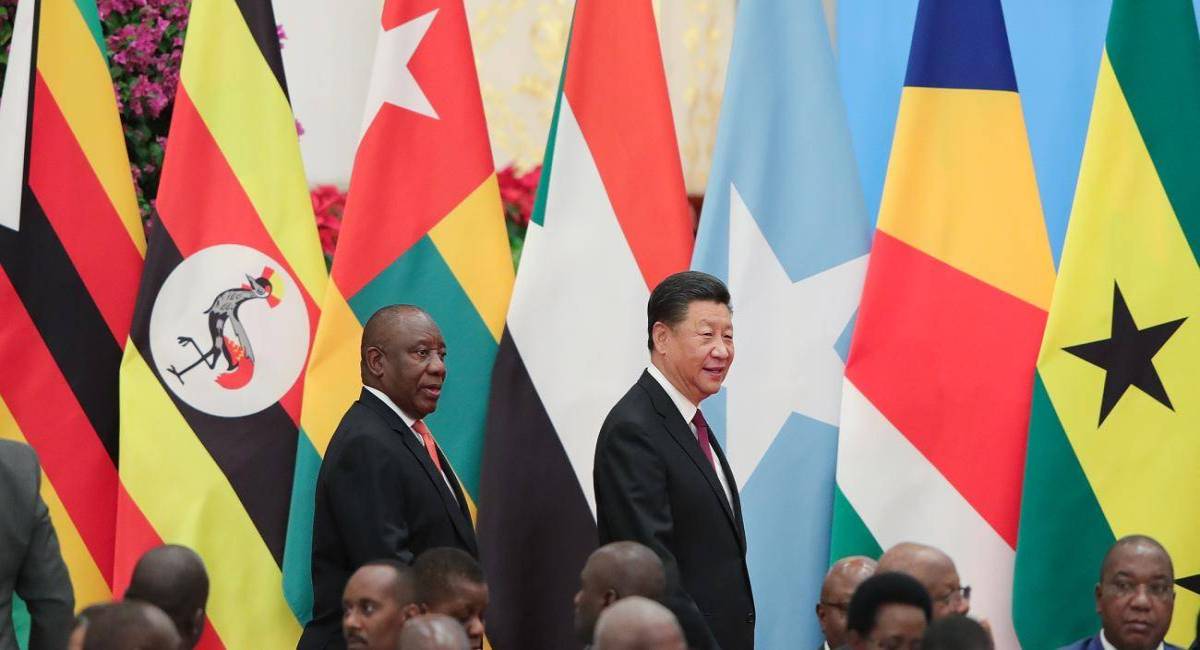2133 Views
China vs. America in Africa: Benevolent Partners or Ruthless Exploiters?
In recent years, China and the United States, based on their respective visions of their roles in the future of international politics, have defined strategic objectives across various continents. Africa, due to its rich natural resources and geostrategic position, has emerged as one of the primary arenas for both powers to expand their influence. Each country has designed a unique set of programs to achieve its goals: the U.S. relying on a blend of hard and soft power with a hardware-centric focus, while China pursues its objectives through predominantly soft-power strategies. This competition manifests itself in various forms, as explored below.
Institutional Approach vs. Self-Centered Strategy
Over the past decade, China has emphasized the creation and expansion of local institutions in different parts of the world, aiming to empower regional entities in line with its own strategic interests. In Africa, China has sought to assemble a bloc of African countries to foster bilateral cooperation, chiefly through the Forum on China–Africa Cooperation (FOCAC). Through tailored investment packages that prioritize the specific needs of member states, China has effectively expanded its influence across the continent.
In contrast to China’s institutional approach, the U.S. strategy in Africa has remained largely self-centered, focusing on maintaining American global dominance and curbing China’s expanding presence. African nations, based on their own strategic calculations, have increasingly come to view bilateral relations with China as conducive to economic and military development. Meanwhile, U.S. initiatives are perceived more as countermeasures against a third party than genuine efforts to support African growth.
Soft Diplomacy vs. Hard Power Diplomacy
China’s diplomatic agenda in Africa is structured around long-term development, offering comprehensive solutions tailored to the diverse needs of African states. Notably, China annually hosts tens of thousands of African military personnel for both military and cultural training—underscoring the importance Beijing places on education and cultural exchange, even among security forces.
Conversely, the U.S. military has intensified its aggressive posture, identifying hotspots worldwide and deploying multidimensional Special Forces units aimed at countering Chinese expansion. In this U.S. framework, alliances are reduced to mere instruments for achieving Washington's goals, offering African states little beyond tactical utility.
Stability vs. Interventionism
China has positioned itself in Africa under the banner of solidarity and stability, a message that has resonated positively with African leaders over the years. This stands in stark contrast to the traditional Western logic of intervention, often viewed in Africa as a colonial relic devoid of legitimacy. Africa's historical battles against colonialism have left deep-rooted skepticism toward foreign intervention.
If the U.S. seeks to counter China in Africa using military and economic tools, it must first grasp the continent’s political logic. Washington’s heightened sensitivity to China’s influence has blinded it to the region’s on-the-ground realities. Although the Trump administration designed plans to preserve America’s geostrategic standing in Africa, these initiatives have proven inflexible and ill-suited for sustaining long-term influence.
Containment or Cooperation?
In recent years, Africa has become a symbolic battleground where the strategies of China and the United States crystallize into two opposing doctrines: containment or cooperation. These two paths—deeply rooted in centuries-old philosophical traditions—now serve as ideological litmus tests for both Eastern and Western blocs. The coming years will reveal which doctrine proves more effective in shaping the future of global politics.
In conclusion, Africa is now widely recognized as the "continent of opportunity." Alongside other Global South nations, it has the potential to emerge as a collective force in global power dynamics. Both China and the U.S. are keen on deepening their foothold in Africa to enhance their geostrategic leverage. The emerging world order will likely be shaped by new powers and Eastern nations whose narratives are more appealing to global populations. The traditional doctrines of intervention, containment, and sanctions will find no place in this new international system.
*Translated by Ashraf Hemmati from the original Persian article written by Amir Ali Yegane

Comment
Post a comment for this article